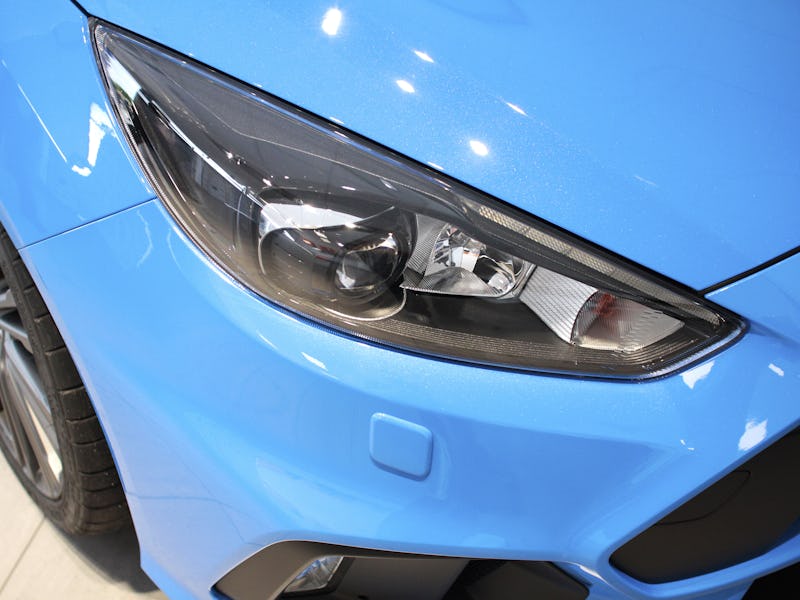BMW says its electric car will rival Tesla on a top technical factor
The all-electric BMW M5 could feature a staggering amount of battery range, fueling the race to go further.

BMW could be set to take on Tesla with its upcoming vehicle, an all-electric version of the BMW M5. The firm's future car could offer a large number of miles between battery charges, a pain point for would-be electric car buyers, and an area where Tesla has previously excelled. Arguably the top technical factor when comparing electric cars, range has long been the battlefield on which EVs compete.
On Friday, Car magazine reported the firm is working on a vehicle with a projected maximum range per charge of 435 miles. That would break the symbolic 400-mile barrier, a figure even Tesla has yet to officially reach based on its advertised figures. A vehicle with range like that would be able to travel from San Francisco to Los Angeles on a single charge, and still have some juice left for a bit of city driving.
The rumor highlights the growing race in the electric vehicle space, as traditional automakers push to electrify their lineup. Audi this week declared it's working on a "highly efficient" electric car under its "Artemis" initiative due for launch in 2024. Volkswagen is investing €30 billion ($33.4 billion) in e-mobility by 2023, with a goal of one million electric cars on the road by that year – including newcomers like the ID Buzz hippy van. General Motors is also planning to invest $20 billion in electric vehicles by 2025.
BMW's M5 could join a growing chorus of Tesla rivals, which have previously struggled to meet the firm's impressive battery range on its vehicles. These rivals are eager to take on the electric-only automaker, which has sold nearly one million cars and risen to become the world's second most-valuable automaker. There's just one catch in BMW's plan: the new M5 isn't expected to hit roads until 2024.
Could BMW take on Tesla?
What we do know about the M5 sounds impressive. It uses a 135-kilowatt-hour battery to offer its high levels of range, made up of pouch batteries rather than the round style preferred by Tesla. While Tesla has moved away from listing battery sizes in its more recent vehicles, it's understood that the firm hasn't shipped a car with a battery larger than 100 kilowatt-hours yet.
It can support a 400V charger up to 350 kilowatts, higher than the Tesla superchargers that can top up a Model 3 in just 15 minutes. It later plans to support the 800V standard used by the likes of the Porsche Taycan.
All this would add up to a vehicle with a maximum of 435 miles of range under the Worldwide Harmonised Light Vehicle Test Procedure, or WLTP. This is an alternative measure to the Environmental Protection Agency ratings typically used in American marketing. Steve Huntingford, editor of What Car, told InsideEVs in August 2019 that the WLTP focuses more on stop-start driving more common in Europe.
By comparison, the Tesla Model S gets 379 miles under WLTP, while the Model 3 gets 348 miles. The Model X and the Model Y both get 314 miles.
Beyond range, the BMW M5 plans to offer impressive stats. It's aiming for 0 to 62 mph acceleration times of 2.9 seconds. It's set to use a tri-motor configuration, with two 250-kilowatt motors on the rear wheels and a third 250-kilowatt motor on the front. The configuration bears similarities to Tesla's upcoming Cybertruck, due for launch late 2021.
The Inverse analysis – The M5 could offer impressive competition in an area where Tesla rivals have struggled. But while 435 miles is impressive, Tesla is already taking steps to go further.
The company is currently working to push its Model S sedan past the 400-mile mark. It's also planning to release the Cybertruck next year, with a range of over 500 miles on the high end. The Roadster due for launch in 2022 could also reach 620 miles per charge. The firm's advancements could be boosted by rumored new battery technologies, planned for unveiling later this year.
BMW could take on Tesla, but can it take on the Tesla of 2024?